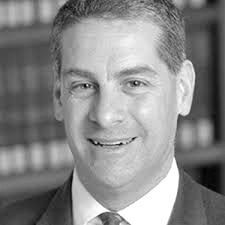If you are looking for consistent guidance, Zechariah is not your prophet. At the beginning of this week’s Haftarah, he relates:
Shout for joy, Fair Zion! For lo, I come; and I will dwell in your midst—declares the Lord.
Terrific! A joyful celebration for God. But two verses later, we are commanded:
Be silent, all flesh, before the Lord!
For He is roused from His holy habitation.
Well, which is it, then? Silence or shouting? The answer, of course, is both – which leads to some interesting implications for Jewish prayer life.
In much of the Jewish community, Sunday mornings are a time reserved for Hebrew School or other community meetings. I, however, am usually unable to attend them.“>Religious Society of Friends, commonly known as Quakers.
Traditional Quaker worship is often described as “silent,” but that is somewhat misleading. It begins in silence, and much of it proceeds in silence. But Friends worship is not simply silent.
The goal is for the congregation “to know each other in that which is Eternal.” That is accomplished partially through silence, but partially through “messages,” or “vocal ministry.” Quaker meeting creates worship through the interplay of speech and silence; neither functions well without the other. It serves as the contemporary flowering of Zechariah’s vision.
First, the silence. What does it do? I can do no better than “>Meeting prepared to “say something.” The whole point is that any speech should be a message – something from the Spirit that comes to you. One might say that Quaker meeting is a sort of factory for generating the Bat Kol – the still, small voice from Heaven. Of course it isn’t that exactly: we do not believe that what we say in meeting is actually God’s voice. But it shouldn’t be our voice exactly, either.
In my experience, something is “a message” when it begins to bubble up and fill my body. I can’t get rid of it. It is not as if I want to say it; rather, it demands to be said.
This is why, if someone else in the meeting feels moved by a message, they do not say afterwards, “I liked your message,” but rather (in the archaic language that lends itself to jokes) “thee was favored.” Usually, the response is not “thank you” – suggesting that it was the speaker’s message – but rather something on the order of “I am so glad it was meaningful to you.”
A few weeks ago, we had been in silence for about 35-40 minutes. The silence carries with it a certain power and heaviness, as people dive more deeply into their touching with God. Then, suddenly, a little girl, about 3 years old, who somehow had gotten away from the child care staff, ran crying into the meeting room seeking after her mother. “Mommy! Mommy!” she cried. After her mother carried her off, suddenly it came to me. “That was it!” I said. “That was the voice of God! That was the cry calling to us, waking us up!” And then I sat down. No tekiah on the High Holy Days has ever been more powerful to me than that girl’s cry, and I was so grateful that I could hear it in a holy community.
For several weeks last year, a homeless man came into the Meeting, was silent for a few moments, and then played a tune on his harmonica. We listened, and understood. Once, a man whose wife had died suddenly the previous week, stood up tearfully and sang, “This is the day that the Lord has made; let us rejoice and be glad in it.” (Psalm 118:24). We sang with him.
Of course it’s not always like that. “Messages” sometimes degenerate into political rants. But even they have spiritual purposes. For a great gift of Meeting for worship is its requirement to listen. We listen to others and seek the Spirit somewhere in their words. Would it not create holiness if we could do this at all times?
And when we listen to others’ words – or songs – it seeds the growth of messages in our own hearts. Sometimes the messages then begin to respond to each other, not as a debate, but as a communal reflection and sharing. Then, the meeting is said to have “gathered.” I have never had so powerful a spiritual experience.
At first I was scared of the silence. Membership in Quaker meeting, however, has deeply enhanced my Jewish practice. The two are not contradictory. Friends are not bound by creeds, and while Quakerism developed out of the Christian tradition, many Friends do not regard themselves as Christians. Rather, I find that Quaker meeting provides me with a way of experiencing God virtually never found in modern Judaism, because it turns on two things absent from modern Judaism: silence and individual spiritual expression.
“>Krakower Niggun. As we chanted this wordless melody, I envisioned an encounter between Hasidism’s founder, the Baal Shem Tov, and Quakerism’s founder, George Fox. These two contemporaries never actually met. Perhaps, however, they were meeting now, in heaven. And perhaps Zechariah was with them.






















 More news and opinions than at a Shabbat dinner, right in your inbox.
More news and opinions than at a Shabbat dinner, right in your inbox.